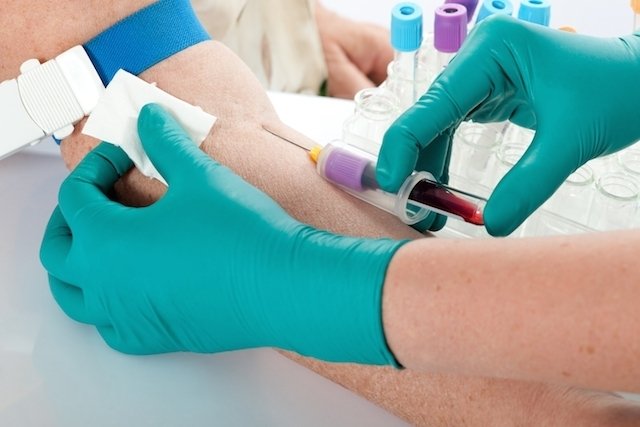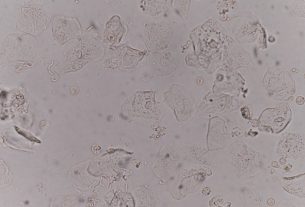The RAST test, also known as the specific IgE test, is an allergy test performed on a blood sample that is indicated to identify possible substances to which a person is allergic, assist in the diagnosis of allergies and monitor their treatment.
In this test, the levels of IgE antibodies produced by the body against various substances are measured, such as some present in pollen or dust, which are recommended by the doctor depending on the type of suspected allergy.
In case of changes in the RAST test result, it is recommended to consult an allergist. In addition to changes in the result, a more detailed evaluation is necessary to confirm whether an allergy really exists.

What is it for
The RAST test is typically indicated for:
- Assist in the diagnosis of food, respiratory or skin allergies;
- Monitor the treatment of allergies;
- Identify possible substances to which the person may be allergic.
This test is normally indicated by the allergist when the prick test, an allergy test that is performed on the skin, cannot be performed due to the risk of serious allergic reactions, frequent use of anti-allergens or, in the case of children, lack of cooperation in their achievement, for example. Understand better what the prick test is and how it is done.
To find out when to take the RAST test, make an appointment with the allergist closest to you:
Taking care of your health has never been easier!
How is done
The RAST test is carried out in the laboratory by collecting a blood sample, in which the levels of IgE antibodies that are produced by the body due to contact with specific substances are measured.
Using the RAST test, IgE levels can be measured for dust mites, pollen, animal hair and food ingredients, such as egg whites, cow’s milk or gluten, for example, which are recommended by the doctor depending on the type of allergy. suspicion.
Typically, no special preparation is required for the RAST test. However, the person must inform the doctor about the medications they take, especially anti-allergens or corticosteroids, as they can affect the results of some allergy tests. See how the main allergy tests are carried out.
What does the result mean
The RAST test result typically indicates a possible allergy when high levels of IgE antibodies are identified in the blood for a specific substance. Check out what IgE is and why it may be high.
However, the reference values for the RAST test vary according to the laboratory in which the test was carried out, the person’s age and the specific IgE antibody for each allergy, for example.
Furthermore, the result must be analyzed by the allergist, who also takes into account the person’s present symptoms and health history, to confirm whether the result could really indicate an allergy or not.
Bibliography
- AX. Skin prick testing for the diagnosis of allergic disease. 2016. Available at: <https://www.allergy.org.au/images/stories/pospapers/ASCIA_SPT_Manual_March_2016.pdf>. Accessed on 06 Dec 2023
- STATPEARLS. Allergy Testing. 2023. Available at: <https://www.ncbi.nlm.nih.gov/books/NBK537020/>. Accessed on 06 Dec 2023
- NHS. Allergy Diagnosis Reference Guide. 2014. Available at: <https://www.mtw.nhs.uk/wp-content/uploads/2015/08/Allergy_diagnosis_reference_guide.pdf>. Accessed on 06 Dec 2023
- DAVID, T.J. Food Allergies: Diagnosis and Management. In: Encyclopedia of Human Nutrition. 3.ed. Elsevier, 2013. 270-276.
- TOURLAS, Konstantinos; BURMAN, Deepa. Allergy Testing. Prim Care. Vol.43, n.3. 363-74, 2016
- CLEVELAND CLINIC. Allergy Blood Test. Disponível em: <https://my.clevelandclinic.org/health/treatments/22345-allergy-blood-test>. Acesso em 06 dez 2023
- NHS. Allergen Specific IgE (RAST). Available at: <https://www.southtees.nhs.uk/services/pathology/tests/allergen-specific-ige-rast/>. Accessed on 06 Dec 2023
- DERMNET. Immunoglobulin E tests. Available at: <https://dermnetnz.org/topics/immunoglobulin-e-tests>. Accessed on 06 Dec 2023

Sign up for our newsletter and stay up to date with exclusive news
that can transform your routine!
Warning: Undefined array key "title" in /home/storelat/public_html/wp-content/plugins/link-whisper-premium/templates/frontend/related-posts.php on line 12
Warning: Undefined array key "title_tag" in /home/storelat/public_html/wp-content/plugins/link-whisper-premium/templates/frontend/related-posts.php on line 13



